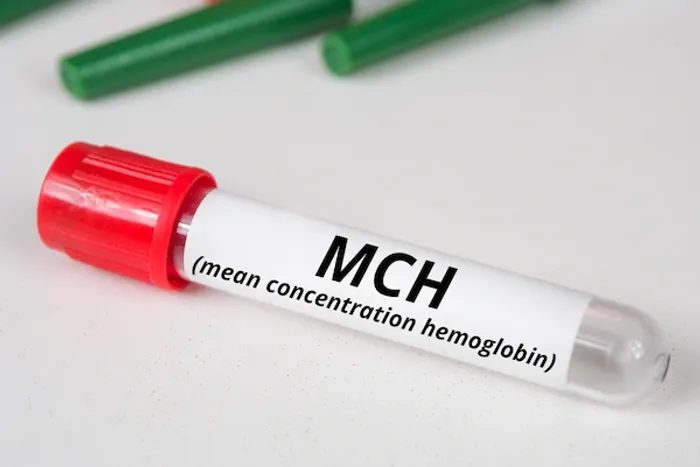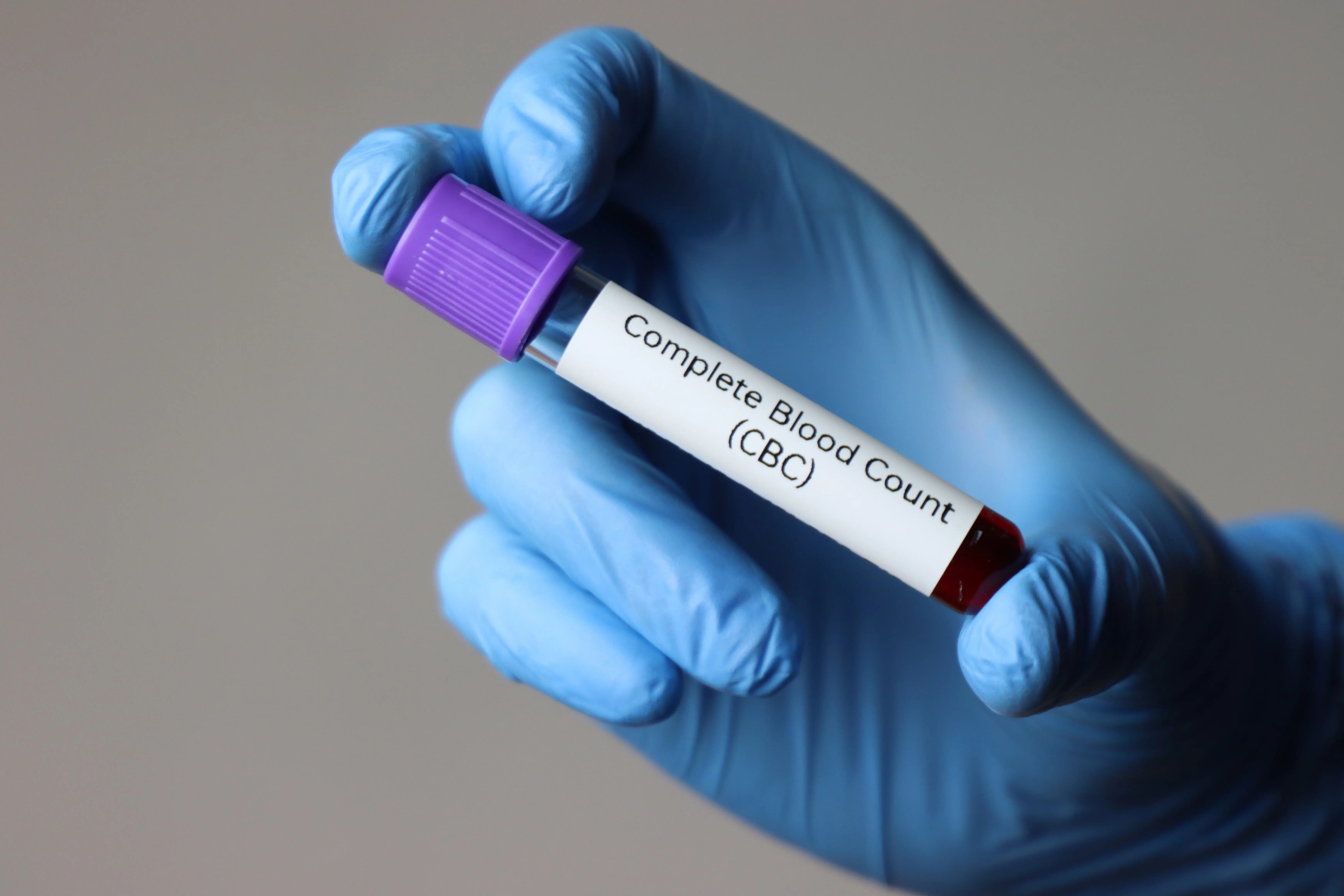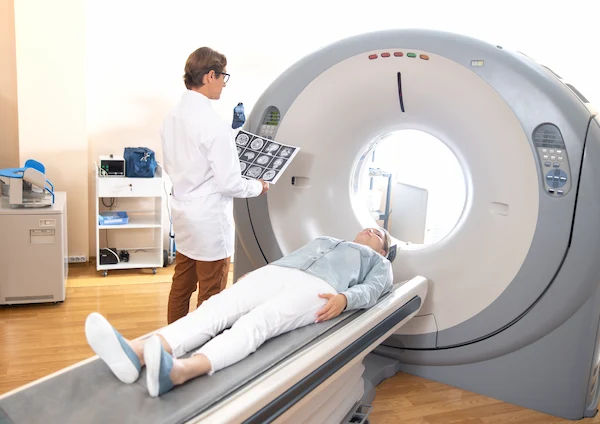MCH Blood Test and Its Reference Ranges
Learn about the MCH blood test, what it measures, and what its normal reference ranges are. Find out what high or low MCH levels could mean for your health.


Introduction
When you get a blood test, you might come across terms like MCH—which stands for Mean Corpuscular Hemoglobin. While it sounds complex, it’s simply a measure of the average amount of hemoglobin in your red blood cells. Hemoglobin is the protein that carries oxygen throughout your body, so knowing your MCH levels can help doctors assess your overall health, especially if you have symptoms like fatigue, weakness, or pale skin.
In this article, we’ll break down:
- What the MCH blood test is?
- Why it’s important?
- Normal reference ranges
- What high or low MCH levels mean?
- How to manage abnormal MCH levels?
What Is an MCH Blood Test?
The MCH (Mean Corpuscular Hemoglobin) test is part of a Complete Blood Count (CBC), a common blood test that checks different components of your blood. The MCH specifically measures the average amount of hemoglobin in each red blood cell.
Hemoglobin is crucial because it binds oxygen in your lungs and delivers it to tissues and organs. If your MCH is too high or too low, it may indicate an underlying health condition that needs attention.
Why Is the MCH Test Done?
Doctors usually order a CBC (which includes MCH) to:
- Check for anemia (low red blood cells or hemoglobin)
- Monitor existing blood disorders
- Investigate symptoms like fatigue, dizziness, or shortness of breath
- Assess overall health before surgery
Normal MCH Reference Ranges
MCH is measured in picograms (pg) per red blood cell. The normal range is:
- 27 to 31 pg per cell (for adults)
However, these values can vary slightly depending on the lab and individual factors like age and gender.
Consult an Nephrologist
What Does a Low MCH Level Mean?
If your MCH is below 27 pg, it means your red blood cells have less hemoglobin than normal. This is often linked to:
1. Iron deficiency anemia – The most common cause, due to low iron intake or blood loss (e.g., heavy periods, ulcers).
2. Chronic diseases – Conditions like kidney disease or inflammatory disorders can affect hemoglobin production.
3. Thalassemia – A genetic disorder that reduces hemoglobin production.
Symptoms of Low MCH:
- Fatigue
- Pale skin
- Weakness
- Shortness of breath
- Cold hands and feet
What Does a High MCH Level Mean?
An MCH above 31 pg suggests that your red blood cells have more hemoglobin than usual. Possible causes include:
1. Vitamin B12 or folate deficiency – These vitamins help produce healthy red blood cells.
2. Liver disease – Can affect hemoglobin metabolism.
3. Hypothyroidism – Low thyroid function may lead to larger red blood cells.
4. Alcoholism – Excessive alcohol can interfere with red blood cell production.
Symptoms of High MCH:
- Weakness
- Numbness or tingling (due to B12 deficiency)
- Yellowish skin (in severe cases)
How to Manage Abnormal MCH Levels?
If Your MCH Is Low (Iron Deficiency Anemia)
- Eat iron-rich foods – Spinach, red meat, lentils, beans, and fortified cereals.
- Take iron supplements – Only if prescribed by a doctor.
- Vitamin C helps absorption – Pair iron-rich foods with citrus fruits or bell peppers.
- Avoid tea/coffee with meals – They can block iron absorption.
If Your MCH Is High (B12/Folate Deficiency)
- Increase B12 intake – Eggs, dairy, fish, and fortified foods.
- Folate rich foods – Leafy greens, nuts, and whole grains.
- Supplements – B12 injections or oral supplements may be needed.
- Limit alcohol – Excessive drinking worsens deficiencies.
When to See a Doctor?
If you experience persistent symptoms like extreme fatigue, dizziness, or unusual paleness, consult a doctor. They may recommend further tests to determine the exact cause of your abnormal MCH levels.
Can You Book an MCH Test Online?
Yes! If you need a Complete Blood Count (CBC) test, including MCH, you can easily book it through Apollo 24|7. A simple blood test can give you valuable insights into your health.
How to Book?:
1. Visit Apollo 24|7’s website or app.
2. Select the CBC test or a full health checkup.
3. Choose a convenient time for sample collection (home or lab).
4. Get your report online within 2448 hours.
Final Thoughts
The MCH blood test is a small but important part of your overall health check. Whether your levels are high or low, understanding what they mean can help you take the right steps toward better health. If you suspect a deficiency or have concerning symptoms, don’t hesitate to get tested and consult a doctor.
Stay informed, stay healthy!
(Need a CBC test? Book now on Apollo 24|7 for quick and reliable results!)
Consult an Nephrologist
Consult an Nephrologist

D. Akshay Zalavadiya
Nephrologist
3 Years • MBBS, MD, DM Nephrology
Ahmedabad
Beacon kidney consult, Ahmedabad

Dr. Siddharth Herur
Nephrologist
4 Years • MBBS, MD General Medicine, DM Nephrology
Kurnool
Medicover hospital and Gurudatta poly clinic, Kurnool

Dr. Luvdeep Dogra
Nephrologist
10 Years • MBBS, MD, DM (NEPHORLOGY)
Jaipur
Dr Dogras Health Clinic, Jaipur

Dr. Anantha Rao
Nephrologist
7 Years • MBBS, DNB (General Medicine), DNB (Nephrology)
Kurnool
Aakash hospital and KIMS hospital, Kurnool

Dr. S Bipin Kumar
Nephrologist
13 Years • MBBS, MD General Medicine, DM, Nephrology
Rajamahendravaram
SG KIDNEY CARE, Rajamahendravaram
Consult an Nephrologist

D. Akshay Zalavadiya
Nephrologist
3 Years • MBBS, MD, DM Nephrology
Ahmedabad
Beacon kidney consult, Ahmedabad

Dr. Siddharth Herur
Nephrologist
4 Years • MBBS, MD General Medicine, DM Nephrology
Kurnool
Medicover hospital and Gurudatta poly clinic, Kurnool

Dr. Luvdeep Dogra
Nephrologist
10 Years • MBBS, MD, DM (NEPHORLOGY)
Jaipur
Dr Dogras Health Clinic, Jaipur

Dr. Anantha Rao
Nephrologist
7 Years • MBBS, DNB (General Medicine), DNB (Nephrology)
Kurnool
Aakash hospital and KIMS hospital, Kurnool

Dr. S Bipin Kumar
Nephrologist
13 Years • MBBS, MD General Medicine, DM, Nephrology
Rajamahendravaram
SG KIDNEY CARE, Rajamahendravaram



.webp)
